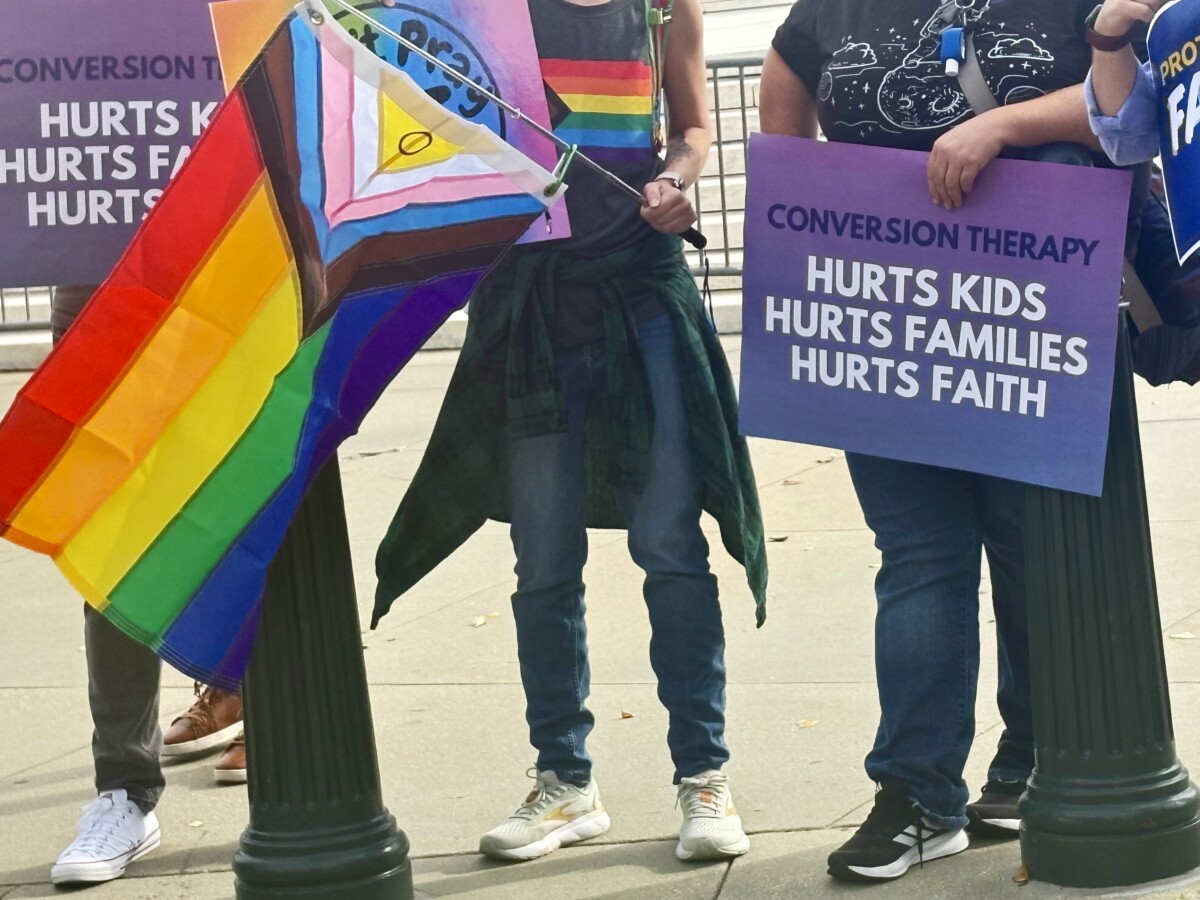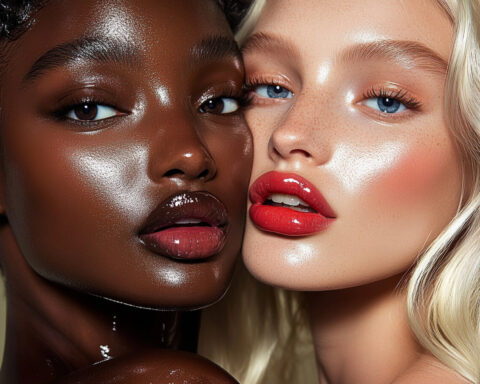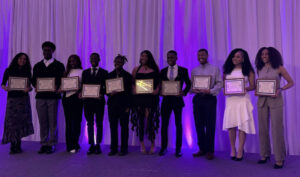WASHINGTON — Tension hung in the crisp October air in front of the marble steps of the Supreme Court on Tuesday morning.
Reporters buzzed, photographers adjusted cameras and activists held signs: “Protect LGBTQ+ Families” and “Conversion Therapy Hurts Kids, Hurts Families, Hurts Faith.”
Inside, justices heard oral arguments for Salazar v. Chiles, a case at the crossroads of free speech and child protection. Kaley Chiles, a Colorado counselor, is challenging the state’s 2019 ban on conversion therapy for minors, claiming it violates her First Amendment rights.
Chiles says she merely talks with clients seeking to realign their identity with their sex while the state calls such therapy harmful.
Her attorney, James Campbell, called the law a “prophylactic” restriction, turning counselors into “mouthpieces for the government.”
Colorado Solicitor General Shannon Stevenson pushed back, describing the ban as a guardrail, not a gag order.
“This law does not interfere with any First Amendment interest,” Stevenson said. “Colorado’s law regulates treatments only and it enforces the professional standard of care.”
“A state cannot be required to let its vulnerable young people waste their time and money on an ineffective, harmful treatment just because that treatment is delivered through words.”
For 90 minutes, the Court wrestled with whether therapy is speech, treatment or something in between. Justice Ketanji Brown Jackson questioned if counseling is truly expressive.
“I’m struggling with whether a therapist, acting in their professional capacity to help someone achieve their goals, is really expressing a message for First Amendment purposes,” Jackson said.
Justice Neil Gorsuch said the Colorado law “dictates opposite results based on viewpoint,” adding that it “looks like blatant viewpoint discrimination.”
Outside, survivors shared the emotional stakes.
Matt Salmon recalled how his parents signed him up for conversion therapy after a local counselor said it could “help.”
“They told me that because my dad wasn’t around as much, men became the exotic,” Salmon said. “It created a big ruckus in my family. I actually hated my dad, and I couldn’t even speak to him for about a year.”
He further described the therapy as a cycle of shame and false hope.
“[The therapist] told me that if it didn’t work, it was because I didn’t try hard enough, that I was a failure,” he said.
Salmon says those sessions left him “with a void,” and for years, he believed he was broken. Now, as a licensed psychotherapist, he works to prevent others from enduring the same harm.
“Licensed health professionals are not protected under the First Amendment,” he said. “It’s both fraud, lying to say there’s a way to change, and abuse because of the psychological harm this causes.”
“Ultimately, we see people walk away with broken egos, identity confusion,” Salmon added. “It increases the risk of depression and suicide.”
The Court’s decision, expected in 2026, could redefine First Amendment protections for professional speech and determine the future of similar bans in over two dozen states.
Bri Outlaw is a reporter for HUNewsService.com.











